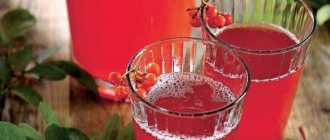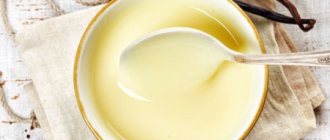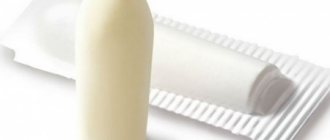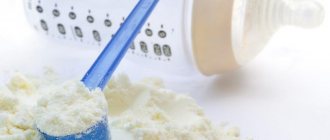The diet of a nursing mother must be impeccable and nourishing, not only for the proper development of the baby, but also to provide the body of the postpartum mother herself, for its speedy recovery, with all the necessary minerals, trace elements and vitamins. Therefore, in the first days after childbirth, a mother should pay special attention to what and how she eats.
What food will be balanced and healthy for the baby and his mother in the first weeks after childbirth? Any inappropriate product consumed by the mother can cause an allergic rash and gas accumulation in the baby.
Basic principles of proper nutrition for young mothers
In order for milk to be nourishing and healthy for an infant, the mother must eat well every day. All food should be rich in proteins, fats, microelements, carbohydrates, and vitamins necessary for a growing body.
Squirrels
Their number in the daily menu is 20%. This amounts to 2 grams for every kilogram of the mother’s total weight. First of all, it should be animal proteins: lean fish and meat, milk, kefir and other fermented milk products, cheese, eggs, cottage cheese. All products must be fresh and of high quality. It is better to give preference to homemade fermented milk and meat products.
Fats
The amount of fat should not exceed 15%. Their main sources are animal and vegetable fats, dairy products, eggs, meat, and fish.
Carbohydrates
The most important component of the daily diet, therefore the ratio of carbohydrates is the highest - 60%. However, you need to remember that it is better not to consume fresh baked goods, highly sweet cereals and juices, because they often provoke processes of increased gas formation.
IMPORTANT! Food should be varied and safe. You need to drink more liquid per day.
What can a nursing mother of a newborn eat after giving birth?
Most young mothers after the birth of a child are afraid that at the beginning of this period they will not be able to eat anything at all. In fact, this is not true, because the diet can always be varied with healthy, wholesome and tasty food.
Vegetables and fruits
Vegetables must be present in the diet every day, because they are very useful and important for the normal functioning of the gastrointestinal tract. In the first and second months they should only be boiled and steamed. Fresh vegetables and juices from them can be introduced in small quantities in the fourth month after the start of lactation.
Don't forget that potatoes, carrots, cauliflower, eggplants, and bell peppers don't have to be fried or covered in a lot of oil and mayonnaise to make them tasty.
red fish
IMPORTANT! During lactation, it is generally better to exclude exotic vegetables and fruits that are not familiar to us.
As for fruits, the safest are green apples (necessarily baked) and bananas. You need to give preference to seasonal fruits and berries, do not eat watermelons in May and strawberries in February. Plums, pears, grapes, citrus fruits and raspberries should generally be avoided during the lactation period.
Poultry, meat and meat products
Meat products significantly increase the amount of milk, replenish strength and saturate the body. Acceptable varieties include beef, veal, chicken, turkey, and rabbit. They can be consumed in any form, except fried.
It is generally not recommended to introduce sausage, smoked meats, frankfurters and other semi-finished products into your diet during the entire lactation period, because most of them have a questionable composition and shelf life.
Meat
Fish and seafood
Fish is an essential component of a nursing mother’s diet. It can be eaten boiled and steamed. Preference should be given to red fish and low-fat varieties:
- Heku;
- Pollock;
- Cod.
red fish
It is better not to consume seafood (shrimp, squid, shellfish) until at least 6-8 months. They are the cause of many allergic reactions. You need to introduce them into your diet one little at a time, making sure to monitor the baby’s reaction.
The danger of seafood lies in the fact that it is not known where they were caught, in what conditions they lived and were stored, being already frozen.
Cereals
An excellent solution for enriching breast milk with beneficial microelements. Cereals can be added to soups or cooked as a side dish. Almost all of their types are allowed in unlimited quantities. The only condition is that they must be prepared at home using clean water. From 6 months they can be cooked with milk.
Cereals
You will need to give up millet and pearl barley until the baby is three months old..
Dairy
These products are responsible for saturating our body with beneficial lactobacilli necessary for the normal functioning of the gastrointestinal tract. A young mother must consume them in large quantities. At the same time, you are allowed to drink milk, kefir, fermented baked milk, eat cottage cheese and sour cream.
Dairy
IMPORTANT! It is strictly forbidden to consume condensed milk, because it is a strong allergen and in most cases provokes colic and bloating.
Features of the diet for weight loss
Many women, in their quest to regain their previous slimness, try to take advantage of any strict nutritional system and make a mistake. After all, first of all, they harm not only themselves, but also their child.
The exception is those who have stopped breastfeeding. In this regard, they are more free. However, we must remember that the body must recover after a long pregnancy, and especially after childbirth.
All weight loss programs take this nuance into account, and therefore impose restrictions on use. After all, even the most strict diets cannot always bring the desired result, and sometimes, on the contrary, they help not to lose, but to gain additional kilograms.
It is for this reason that a specially designed postpartum diet for weight loss can help.
First of all, it requires you to always control your caloric intake. Moreover, the threshold of 1600-1800 calories per day is not so difficult.
The following restrictions are introduced:
- refusal of fast food and semi-finished products;
- you need to give up such an unpleasant habit as “eating” stressful situations
- Alcoholic products are not allowed.
To lose weight safely, you should use the following recommendations:
- We switch to fractional, five meals a day. This will avoid acute hunger, while at the same time ensuring that the body receives nutrients;
- you definitely need to have breakfast. It is not recommended to skip it, first of all, because it helps the body wake up and starts the metabolic process;
- When choosing breakfast foods, remember your plans for the day. If you are planning physical activity, then you should include a little more calories; if not, then it is better to stick to more neutral (low-calorie) foods;
- It is good to include porridge from various types of cereals prepared in water or low-fat milk in your diet, you can add dry or fresh fruits, make salads from vegetables, especially grated carrots;
- drink natural juices, pure and mineral water without carbon.
What a nursing mother should not eat
The period of breastfeeding should be deprived of the following products:
- Fatty, fried, smoked, too salty, peppery;
- Alcohol in any of its forms;
- Carbonated drinks;
- Coffee, cocoa;
- Strong black tea and green tea, which contains fruit additives;
- Chocolate;
- Fresh baked goods, rich cakes and pastries;
- Pickles, semi-finished products and canned food;
- Semi-finished products;
- Beans, peas;
- Fruits and vegetables that are not typical for our climate;
- Mushrooms are a difficult product for children's digestive system.
ATTENTION! There have been many recorded cases of mushrooms causing serious poisoning.
Allergen-containing products
These include vegetables and fruits that grow far beyond the young mother’s place of residence. It is better to eat what is familiar and familiar to our body.
The most common foods that cause allergies in babies are:
- Chocolate;
- Citrus;
- Tomatoes;
- Mushrooms;
- Nuts;
- Seafood;
- Eggs;
- Some types of fish;
- Canned food;
- Strawberries, raspberries, all red vegetables and fruits;
- Carrot;
- Cow's milk (at least in the first month of life).
If the mother has a mild allergy to any product, she should not consume it for at least a year, until the breastfeeding period ends. A week should pass after the introduction of each new product. This is the only way to determine, if necessary, why the baby has a rash or redness.
Table of allowed and prohibited foods during breastfeeding
The list of foods that you can eat after childbirth is quite long. It is presented in the following table.
| Product | Features of use |
| Dairy products | The healthiest thing for mother and baby is kefir. The permissible daily amount should not exceed half a liter. Taking too much of it can cause bloating or diarrhea. |
| Cheese | Allowed in small quantities. At the same time, it should have a creamy taste and not be too spicy or salty. |
| Cottage cheese, fermented baked milk, yogurt | It is better to opt for homemade products, because they will be truly natural and healthy, without preservatives or additives. |
| Yogurt | Should not contain harmful dyes. It is better to avoid this product in the first months after childbirth, so as not to cause an allergic reaction. |
| Fish | In the weekly diet it should appear only twice a week. This is a very allergenic product. In addition, fish varieties should be low-fat. This could be, for example, pollock, hake, pike perch. |
| Apples | Only baked. Preference should be given to green varieties that will not be grown abroad. This way they will be deprived of special treatment and will be of great benefit to the baby. |
| Carrots, beets, zucchini | Consumed only boiled and baked no earlier than 3 months after birth. This is explained by the fact that carrots are a strong allergen, and beets can cause loose stools in a child. |
| Bananas | In the first month, the amount of their use should be limited to one piece per day. In general, this fruit is very healthy, because it contains many vitamins and microelements. |
| Soups | Cooked in vegetable and meat (low-fat) broths. The main thing is that they do not contain cabbage and legumes. |
| Vegetable oil | The permissible dose per day is 15 ml. It is better to use unrefined oil: sunflower, corn, olive. |
| Butter | A must-have product that can be eaten with a sandwich or added to porridge. The maximum amount per day is 25 ml. |
| Bread | You can introduce any baked goods into your diet, but they must be stale (the nursing mother eats them on the second day after baking) so as not to cause severe bloating. |
| Pasta | It is better to give preference to durum wheat varieties. You can use them from the first days of a child’s life. |
| Eggs | Introduce into your diet with caution. Be sure to monitor the baby’s reaction, since protein is a very strong allergen. |
| Potato | The healthiest ones will be baked, boiled in their skins or as a puree. |
| Water | You should drink as much clean, still water without dyes as possible. An excellent solution would be to use dried fruit compote. |
| Beverages | Green tea without aromatic additives and weak black tea. The stronger the drink, the worse the child’s sleep. |
| Sweets | In the first months after childbirth, you are allowed to eat only biscuits, bagels and crackers. |
List of prohibited products
| Product | |
| Chocolate | A small amount of one candy is allowed to be consumed only from the third month of the baby’s life. |
| Caviar and seafood | Caviar is a healthy product if it is of good quality. Seafood should be treated with caution, because most of them can accumulate harmful metals, the presence of which in the body of the mother and child will play a negative role. |
| Raw vegetables | A complete ban on tomatoes, radishes, cabbage and cucumbers in the first three months of the baby’s life. |
| Vegetables, fruits and red berries | The mother should refrain from eating raspberries, strawberries and wild strawberries. The best time to try them is five months after birth. |
| Cabbage | It is prohibited in any form: stewed, raw, boiled, as it provokes severe flatulence. |
| Various types of legumes, onions, garlic | They need to be eaten with great caution, as they can give the milk an unpleasant aftertaste, causing the child to refuse to eat it. |
| Pears and grapes | Banned until at least six months have passed after giving birth. They cause severe gas formation |
| Melon watermelon | Only homemade varieties are allowed to be consumed, because store-bought products can lead to poisoning |
| Citrus and various exotic fruits | Until three months, you should not eat them at all, because they are strong allergens. After 3-4 months, you are allowed to eat no more than one slice of fruit per day. |
| Pickles | You should give them up in the first six months. |
| Sausage, frankfurters, smoked meats, semi-finished products | Due to the unclear composition and quality of these products, it is better to introduce them into your diet as late as possible. |
| Fresh pastries, cakes with rich cream | They provoke tummy problems. |
| Semolina | Because of it, flatulence often occurs. |
| Barley porridge | It is forbidden to eat it until the baby is three months old. |
| Carbonated and colored drinks | Contain preservatives and additives that are harmful to the body. |
| Strong tea with additives, coffee | Disturbs the baby's sleep and causes insomnia. |
| Fatty, fried, smoked foods | Heavy on the child's digestive system. |
| Hamburgers, hot dogs and other fast food dishes | It has a dubious origin and composition, many sauces that are harmful to the body. |
| Ice cream | Contains preservatives and dyes. |
| Alcohol | Harmful in any lactation period. |
Recommendations
Compliance with the golden rules of nutrition for a young nursing mother will allow you to avoid many troubles (starting with the baby’s gastric upset and ending with the complete loss of strength of the woman herself, her physical and moral exhaustion). This will allow you to track the baby’s reaction to the mother’s diet, which is changing and constantly enriched with new products.
- You can add no more than one product to the menu in 2 days.
- This should be done only in the first half of the day, so that before bedtime you can track the baby’s reaction to the administered product.
- Initial dosages of food should be minimal.
- If a child becomes covered in a rash, becomes restless, or develops severe gas, the newly introduced product should be excluded from the diet for some time until the baby’s stomach recovers and becomes completely stronger.
- There is no need to rely heavily on water in the first month after birth. The drinking regime during this period also requires restrictions: no more than 1 liter per day, otherwise lactation will increase disproportionately to the baby’s needs, and the matter may end in mastitis. If there is not enough milk, the amount of liquid you drink per day can be increased to 1.5–2 liters.
- You should not go on a diet immediately after giving birth. You need to wait 3-6 months, otherwise your baby risks remaining hungry, which will certainly affect his further development.
- A woman’s diet after the birth of a child should be natural, without nitrates, preservatives and artificial colors - in a word, healthy.
- All products that a woman consumes in the first two months after childbirth must be thoroughly thermally processed.
Useful: How to properly prepare soup for a one-year-old baby?
If a woman’s nutrition after childbirth was organized correctly, in accordance with the above lists of products - what she can eat during this period and what is not recommended - then the value of the food she consumes should be at least 2,500 kcal per day. After all, 800 of them will be spent on milk production. If the caloric content of food is reduced, lactation will decrease, the mother will not have enough energy to support the baby, and serious problems will begin. Therefore, the question of what a woman can eat after giving birth is very important and requires special attention.
Menu for a nursing mother in the first month after childbirth
The diet in the first month is the strictest, even if the mother is not allergic to food. The newborn’s digestive system is not yet fully developed and is not ready to receive complex, fatty adult foods. Smoked meats, semi-finished products, pickled cucumbers and tomatoes, cabbage in any form, and a lot of spices are generally not recommended to be included in your diet.
If the baby does not have an allergic reaction after the mother eats some prohibited product, this can cause abdominal pain, increased gas formation and colic.
You are allowed to drink water and dried fruit compotes. It is better to abstain from cow's milk for now, because quite often it provokes allergies.
IMPORTANT! It is permissible to drink goat's milk, first diluting it half with water. It is very useful and almost never causes allergies.
The daily diet may include the following products:
- Fermented milk drinks;
- Cottage cheese, cheese;
- Butter, vegetable oil in small quantities;
- Lean meat and fish;
- Porridge on the water;
- Green fruits;
- Vegetable stew;
- Soups with vegetable broth or a second meat broth.
Daily diet for mother of a baby
Such a diet can continue throughout the entire lactation period, or it can gradually expand every month.
First week
A woman’s diet in the first 3–5 days after childbirth will depend on how the process went overall. If there were any complications or difficulties, not everything can be started to eat immediately after the birth of the baby. These days you need to adhere to certain fairly strict dietary restrictions. And the young mother’s relatives should know about this so as not to bring products to the maternity hospital that will spoil lactation or affect the child’s condition.
If there are seams on the perineum
- You should not eat foods rich in fiber: brown bread, raw fruits, vegetables, bran;
- You can eat porridge (preferably with water), first courses, fermented milk products (in limited quantities).
This will ensure at least some temporary retention of stool, which means it will avoid the sutures coming apart, which will contribute to their speedy healing.
After caesarean section
- on the first day you can’t eat anything, you can only drink still water;
- on the second day it is already allowed to eat a little broth (low-fat), meat (in the form of puree), apples (preferably baked), porridge (with water).
To improve her condition after childbirth, a woman should adhere to these recommendations in order to regain strength as quickly as possible. If complications were avoided, after discharge from the maternity hospital, the young mother needs to be very attentive to her own diet at home, following the recommendations of doctors.
Vegetable stew can be present on the menu of a nursing mother already in the first month after childbirth
Proper nutrition for a nursing mother by month - table
Proper nutrition will not only enrich milk with useful substances, but will also help you quickly lose weight after childbirth. Let's consider its basic principles depending on the age of the baby.
| Child's age | Acceptable foods |
| From birth to 1 month | Cottage cheese, kefir, yogurt without dyes or additives, buckwheat, oatmeal, green apples (baked), bananas, boiled chicken or veal, crackers, light vegetable soups |
| 1-3 months | Boiled fish, dried fruit compote, beef liver (homemade) |
| 3-6 months | Gray, black bread, low-fat sour cream, carrots, lean pork |
| 6-9 months | Honey, red fish once a week, weak tea, fresh vegetables |
| 9-12 months | Fresh berries, parsley, dill, basil |
Second month
Since the baby’s stomach has adapted a little by this time, mommy can somewhat diversify her menu and eat much more foods than before. In the second month after birth, you can gradually include in your diet:
- egg;
- uzvars, dried fruit compotes;
- light, weak fruit drinks from cranberries and currants;
- milk sausage, beef sausages;
- dumplings, dumplings, pancakes, pancakes;
- cracker;
- jam;
- nuts (small amount, no more than a handful per day);
- honey;
- lentil and soy dishes;
- butter;
- salted cucumbers;
- milk (no more than 2.5% fat);
- herring (in limited quantities);
- baked pear.
All other products from the prohibited list of the first month should be left for later introduction into your diet. Starting from the third month, it will be possible to gradually expand the horizons of what is permitted, but at the same time do not forget to observe the baby’s reaction to each new product. Several useful tips will help you organize a woman’s nutrition after childbirth competently.
After giving birth, you should never go on a diet; this can cause a lot of trouble for both you and the baby.
How to use nutrition to improve the quality and quantity of milk
By changing her usual diet to a dietary one, a nursing mother significantly improves the quality of milk, enriching it with zinc, iodine, iron, calcium and other beneficial vitamins and microelements. To increase milk production, you should eat more beef (boiled, stewed or baked) and drink more fluids:
- Clean water;
- Tea with the addition of lemon balm, nettle, mint, because they perfectly stimulate the production of milk;
- Dried fruit compotes.
In order not to lose a lot of vitamins from your body, and also to provide your child with a sufficient amount of them, you need to eat buckwheat, oatmeal, baked vegetables and fruits, and various fermented milk products.
IMPORTANT! Monotonous boiled food will quickly get boring for mom and cause constipation.
Drinking regime during lactation
Particular attention should also be paid to the amount of fluid you drink per day. The more water, the more milk you will end up with. In addition to water, you are allowed to drink milk, non-concentrated homemade juices, and tea.
ATTENTION! The usual daily amount of fluid should be increased by at least 1 liter.
It is necessary to remember that immediately after giving birth, it is strictly forbidden to drink a lot of liquid for 3-4 days. Its total volume should be limited to one liter. The reason for this is related to the production of colostrum in the first three days after birth. Excess fluid in the body will lead to the rapid appearance of milk in large quantities. This will impede the outflow of colostrum and lead to lactostasis.
You need to drink 2-3 liters of water per day
Caesarean
The diet of women in labor who have had surgery is not much different from those who had a natural birth. The main difference is that you can’t eat immediately after giving birth - only drink. Moreover, the water must be clean and still. On the second day, the food must be liquid - liquid porridge, the first course (but low-fat, dietary, for example, broth).
Only on the third day can a new mother introduce new foods into her diet, and do this gradually - lean meat, cottage cheese or green apples.
Important! As soon as the body begins to recover from the operation, you can move on to a full menu, which is allowed during breastfeeding.
On the first day after a cesarean section, you will have to limit yourself to drinking water only.











